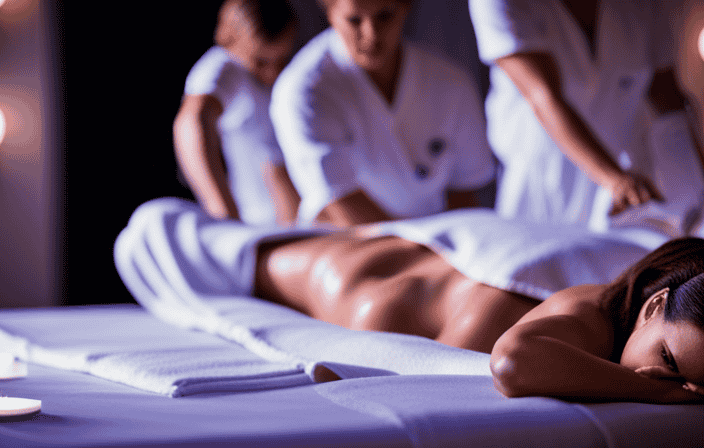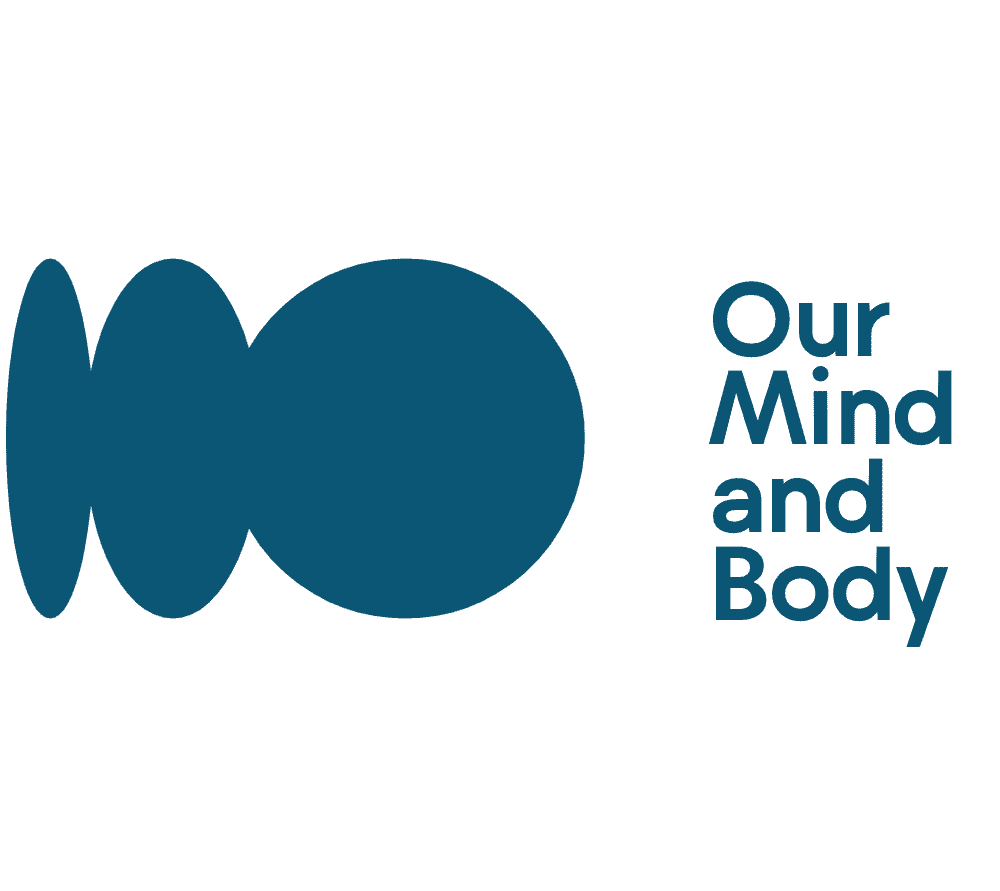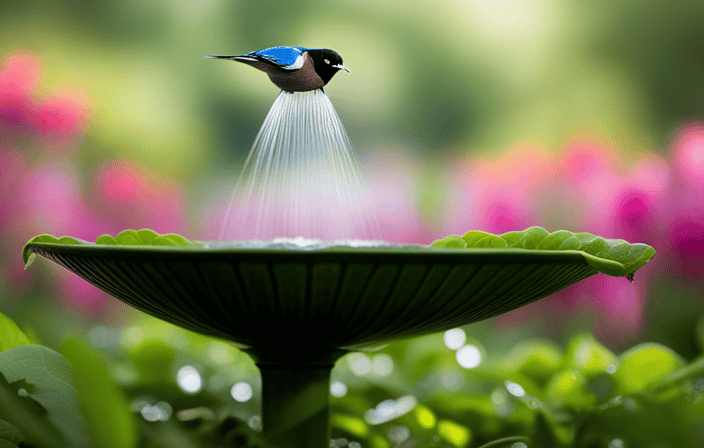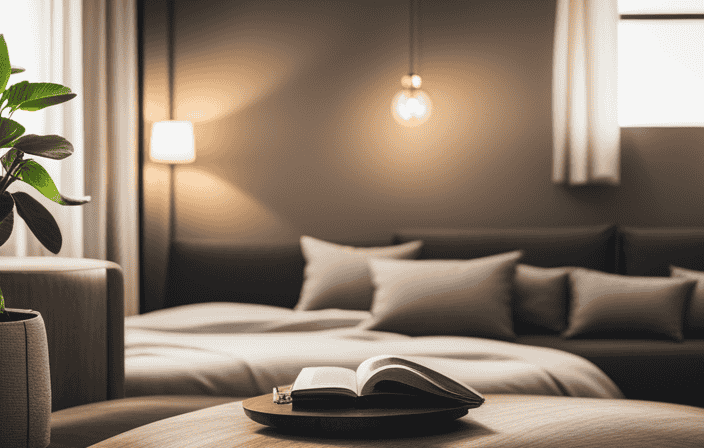Meditation
Maximizing Your Massage Experience: Tips For Better Results

Picture this: You scheduled a massage to unwind and release muscle tension, only to end up feeling dissatisfied and let down. Does this situation ring a bell? No need to fret, you’re not the only one.
In this article, I’ll share 12 tried-and-true tips to maximize your massage experience and achieve better results.
From effective communication with your therapist to choosing the right type of massage for your needs, creating a relaxing atmosphere, and incorporating additional techniques like cupping therapy, these tips will help you get the most out of your massage sessions.
So, let’s dive in and learn how to enhance your massage experience for ultimate relaxation and rejuvenation.
Key Takeaways
- Clearly communicate needs, preferences, and any physical ailments or injuries
- Choose the right type of massage that suits your needs
- Enhance the massage experience with cupping therapy
- Create a relaxing atmosphere to eliminate distractions
Communication with therapist
I always make sure to clearly communicate my needs, preferences, and any physical ailments or injuries to my massage therapist. This allows me to personalize the experience and discuss my preferences with the therapist.
Effective communication is essential for better results. It allows the therapist to understand my specific needs and tailor the massage accordingly. Whether I have specific areas of tension or injuries that require special attention, I make sure to inform my therapist. This way, they can focus on those areas and provide the appropriate techniques.
This open line of communication ensures that I receive a massage that is tailored to my individual needs. It results in a more satisfying and beneficial experience overall.
Choosing the right type
Finding the right type of massage for my needs is crucial for getting the most out of my massage sessions. With so many different types available, it’s important to do my research and find the one that suits me best.
Discussing my preferences and goals with my therapist is also essential in making the right choice. They can provide guidance and recommend a specialist in the chosen massage type if needed.
By choosing the right type of massage, I can ensure that my specific needs are addressed and that I receive the maximum benefit from each session.
So, whether I’m seeking relaxation, pain relief, or stress reduction, finding the right massage technique is key to maximizing my massage experience.
Enhancing with cupping therapy
Enhancing the massage sessions with cupping therapy can provide additional benefits and improve the overall effectiveness of the treatment. Cupping therapy involves using cups to create suction on the skin, which helps release muscle tension and stimulate blood flow deeper into the muscle layers. This technique can be added to your regular massage session, allowing for a deeper release of muscle tension and promoting faster recovery. Additionally, learning cupping techniques for self-application can help you continue to experience the benefits of cupping therapy at home. Consider incorporating cupping therapy into your massage sessions to enhance the relaxation and healing effects.
| Benefits of Cupping Therapy |
|---|
| Release muscle tension more effectively |
| Stimulate blood flow deeper into muscle layers |
| Promote faster recovery |
| Learn cupping techniques for self-application |
By combining cupping therapy with your massage sessions, you can maximize the benefits and improve your overall massage experience.
Creating a relaxing atmosphere
Creating a relaxing atmosphere during my massage session is essential for achieving maximum relaxation and therapeutic benefits. To ensure an environment conducive to deep relaxation, I take several steps:
- I eliminate any distractions, such as turning off my phone or ensuring a quiet space.
- I dim the lights and play calming music to create a soothing ambiance.
- Prior to my session, I practice yoga or meditation to calm my mind and prepare my body.
- I focus on my breathing, taking deep breaths to further relax my muscles and enhance the massage experience.
- I communicate my preferences to the massage therapist, ensuring that they understand my desire for a tranquil and peaceful environment.
By creating this relaxing atmosphere, I can fully immerse myself in the massage, allowing the therapist to access and release any tension held within my muscles. It enhances the overall effectiveness of the session, leaving me feeling rejuvenated and at peace.
Breathing techniques
During my massage session, I focus on my breathing to help relax my muscles and enhance the overall experience. Deep breathing is a powerful technique that allows me to release tension and increase oxygen flow throughout my body.
As I take slow, deep breaths, I can feel my muscles becoming more relaxed and receptive to the therapist’s touch. This not only helps me to fully relax every part of my body, but it also allows the therapist to work on any tight spots more effectively.
I have found that finding a breathing technique that works for me, such as counting my breaths or focusing on the sensation of the breath entering and leaving my body, greatly enhances the benefits of the massage.
By incorporating intentional breathing into my session, I am able to achieve a deeper state of relaxation and truly maximize the results of my massage.
Focusing on relaxation
Now that we’ve discussed the importance of proper breathing techniques during a massage, let’s shift our focus to the next step in maximizing your massage experience: focusing on relaxation.
When it comes to achieving optimal results from your massage session, relaxation is key. By consciously concentrating on relaxing every part of your body, you allow the therapist to have full access to your muscle tissue, enabling them to release any pent-up tension held by tight muscles.
To further enhance the relaxation process, here are three additional tips:
-
Visualize: Close your eyes and imagine yourself in a peaceful, serene environment, such as a beach or a tranquil garden.
-
Practice Mindfulness: Pay attention to the sensations you feel during the massage, such as the pressure and the soothing movements of the therapist’s hands.
-
Practice Deep Relaxation Techniques: Incorporate deep breathing exercises or progressive muscle relaxation to promote a deeper state of relaxation throughout your massage.
By incorporating these techniques, you can enhance the overall effectiveness of your massage and leave the session feeling deeply relaxed and rejuvenated.
Scheduling regular sessions
To ensure maximum benefits, I schedule regular massage sessions on a monthly basis. Consistency is key when it comes to reaping the rewards of massage therapy. However, the frequency of sessions may vary depending on individual needs. For chronic muscle pain or specific conditions, I might consider twice a month or even once a week appointments. By maintaining a regular schedule, I allow my therapist to address any muscle tension or discomfort before it becomes more severe. It also gives me the opportunity to relax and unwind on a consistent basis.
To help you visualize the benefits of scheduling regular sessions, here is a table showcasing the advantages:
| Benefits of Regular Massage Sessions |
|---|
| Relieves muscle tension and pain |
| Improves flexibility and range of motion |
| Reduces stress and promotes relaxation |
By committing to regular massage sessions, I am able to experience the long-term benefits of improved physical and mental well-being.
Stretching before and after
When I schedule regular massage sessions, I also make sure to incorporate stretching before and after the massage.
Stretching before the massage helps improve flexibility, allowing the therapist to work more effectively on tight muscles. It also prepares the body for the upcoming massage, enhancing the overall effects.
After the massage, stretching helps elongate the muscles and prevent any potential soreness or stiffness. I always make sure to stretch slowly and gently, allowing the muscles to fully relax and reap the benefits of the massage.
By incorporating stretching into my routine, I have noticed improved flexibility and reduced muscle tension between sessions. It is an essential part of maximizing my massage experience and achieving better results.
Staying hydrated
Staying hydrated is crucial for maximizing the benefits of my massage sessions. Drinking plenty of water before and after my massage helps facilitate the removal of toxins from my muscle tissues and aids in enhancing circulation. Hydration is essential for my overall well-being and plays a significant role in the effectiveness of the massage.
Proper hydration ensures that my muscles are pliable and receptive to the therapist’s techniques. It also helps prevent muscle cramps and soreness after the session. I make it a priority to drink water throughout the day, especially on the day of my massage.
By staying hydrated, I am able to fully enjoy the therapeutic benefits of my massage and promote optimal muscle relaxation.
Arriving early for appointments
Arriving early for my appointments ensures that I have enough time for the therapist to work on my muscles and allows me to mentally prepare and relax, avoiding any anxiety caused by rushing. It sets the tone for a more productive and enjoyable massage session.
Here are a few reasons why arriving early is essential:
-
Time for the therapist: By being punctual, I give the therapist ample time to focus on my muscles and address any specific areas of concern. This way, they can provide a more thorough and effective massage.
-
Mental preparation and relaxation: Arriving early allows me to transition from my busy day to a more relaxed state. I can take a few moments to unwind, quiet my mind, and let go of any stress or tension.
-
Avoiding anxiety: Rushing to an appointment can create unnecessary anxiety and tension in the body. By arriving early, I can avoid this added stress and start the massage in a calm and peaceful state.
By following these tips, I can make the most of my massage experience and ensure that I receive the maximum benefits from each session.
Providing feedback
Now that we’ve discussed the importance of arriving early for your massage appointments, let’s move on to the next tip for maximizing your massage experience: providing feedback.
As a seasoned massage enthusiast, I cannot stress enough the significance of open communication during your session. It is essential to speak up and let your therapist know if you are experiencing any pain or discomfort. By doing so, you allow them to adjust their techniques accordingly, ensuring a more personalized and effective treatment.
Remember, your therapist is there to help you, and they rely on your feedback to tailor the massage to your specific needs. So, don’t hesitate to share your thoughts and feelings throughout the session. Together, you and your therapist can create a truly transformative and satisfying massage experience.
Frequently Asked Questions
Are there any risks or side effects associated with cupping therapy during a massage session?
Yes, there can be some risks and side effects associated with cupping therapy during a massage session. These may include temporary bruising, discomfort, and skin discoloration. It’s important to consult with a trained professional to ensure safe and effective treatment.
How long should I wait to eat before a massage session?
I recommend waiting at least 1-2 hours after eating before a massage session. This allows your body to digest the food and prevents discomfort during the massage. It’s important to be comfortable and relaxed during your session to get the most benefit.
Can I request a specific massage technique or combination of techniques?
Yes, you can definitely request a specific massage technique or a combination of techniques. It’s important to communicate your preferences and needs with your massage therapist to ensure a personalized and effective massage experience.
What should I wear during a massage session?
During a massage session, it is best to wear comfortable, loose-fitting clothing or simply undress to your level of comfort. The therapist will provide draping to ensure your privacy and maintain a professional atmosphere.
Is it appropriate to tip my massage therapist? If so, how much is customary?
Yes, it is appropriate to tip your massage therapist. The customary amount is typically 15-20% of the total cost of the session. Tipping shows appreciation for their service and helps support their livelihood.
Meet Nadi, the soulful writer and explorer of inner realms who graces OurMindAndBody.com with her profound insights and heartfelt wisdom. With a profound passion for mindfulness, meditation, and spiritual growth, Nadi weaves words that touch the hearts and minds of readers, leaving a lasting impact on their well-being journey.
Rooted in a background of philosophy and psychology, Nadi’s curiosity about the human mind and the mysteries of the soul led her on a transformative path of self-discovery. Drawn to the transformative power of mindfulness and meditation, she embarked on a quest to understand the intricacies of these practices, not only for her own growth but also to inspire others to embark on their own inner journeys.
Meditation
Flower Power: Stress Relief Through Fragrant Blooms

Are you feeling the effects of daily stress on your mental well-being? Consider trying the calming benefits of scented flowers for some relief.
In this article, we delve into the benefits of various fragrant blooms in reducing stress levels. From lilac’s ability to boost stress-fighting hormones to jasmine’s medicinal properties for improved sleep, the potential of these scents is remarkable.
Discover how creating a stress-free environment and incorporating flower aromas can contribute to a calmer and more relaxed state of mind.
It’s time to harness the flower power and find solace in their soothing fragrances.
Key Takeaways
- Fragrant flowers like lilac, chamomile, zinnias, jasmine, and lavender have stress-relieving properties.
- Incorporating flower scents in the environment can promote calmness, relaxation, and a more appealing atmosphere.
- Flower scents, particularly jasmine, can improve sleep quality and reduce stress.
- Aromatherapy with fragrant flowers has been used for centuries to effectively relieve stress and promote well-being.
Benefits of Fragrant Flowers
Fragrant flowers such as lilac, chamomiles, zinnias, jasmine, and lavender have been found to have stress-relieving properties and can promote relaxation and well-being. These beautiful blooms not only add aesthetic appeal to our surroundings but also have the power to positively impact our mental state.
Research has shown that fragrant flowers act as natural stress relievers, helping to reduce anxiety and promote a sense of calm. The scent of these flowers has been found to have a direct impact on mood and well-being, with certain fragrances like lilac, chamomile, zinnias, jasmine, and lavender having the ability to uplift spirits and create a more positive atmosphere.
Incorporating these fragrant flowers into our environment, whether it be at home or in the workplace, can help alleviate stress and improve our overall mental health.
Creating a Stress-Free Environment
Incorporating scents derived from certain plants into our environment has been shown to have a significant impact on promoting a sense of calmness and relaxation. Studies indicate that these scents can reduce stress levels by up to 40%.
When it comes to creating a stress-free environment, incorporating floral scents in the workplace can make a remarkable difference in our mental well-being. Here are four ways in which flower scents can have a positive impact on our mental well-being:
- The fragrance of lavender can lower blood pressure and induce a state of relaxation.
- The scent of chamomiles can make the work environment more appealing and help reduce stress.
- Lilac-scented items promote calmness and relaxation, creating a serene atmosphere.
- Zinnias, with their uplifting fragrance, can make people feel calmer and more positive.
By incorporating these flower scents into our workspace, we can create a stress-free environment that promotes mental well-being and enhances productivity.
Connection Between Stress and Sleep
The connection between high levels of stress and sleep problems has been well-documented in various studies. Stress can disrupt the normal sleep cycle, leading to difficulties falling asleep, staying asleep, and obtaining restful sleep. Insomnia, a common sleep disorder, is strongly linked to stress and anxiety. Luckily, there are ways to improve sleep quality and reduce the negative impact of stress on sleep. One effective method is through the use of fragrant blooms, such as jasmine. Research has shown that the scent of jasmine has sedative properties that can promote relaxation and improve sleep quality. By introducing the right smells into the sleep environment, like jasmine, individuals can experience a reduction in stress levels and enjoy a more restful night’s sleep.
| Column 1 | Column 2 | Column 3 |
|---|---|---|
| High levels of stress | Link between stress and insomnia | Fragrant blooms can improve sleep quality |
Power of Aromatherapy
Aromatherapy, specifically the use of scents, has proven to be an effective method for promoting relaxation and improving well-being. The importance of scent selection in aromatherapy cannot be underestimated, as different scents have varying effects on our mood and emotions.
Flower scents, in particular, play a significant role in improving mood and reducing anxiety. Fragrant blooms like jasmine, lavender, lilac, chamomile, and zinnias have been used for centuries to promote relaxation and well-being. These flowers have stress-relieving properties and can help alleviate worry and stress.
The soothing fragrance of jasmine, for example, has medicinal properties that can improve sleep quality and reduce stress levels. Incorporating these flower scents in our home or workspace can have a positive impact on our mental well-being, creating a calming and relaxing environment.
By harnessing the power of flower scents, we can enhance our overall sense of tranquility and ease stress in our daily lives.
Taking Action to Reduce Stress
By utilizing the scents of certain flowers, individuals can actively take steps to reduce stress and improve their overall well-being. Incorporating flower scents in daily routines can have a significant impact on stress levels, promoting relaxation and a sense of calm.
Using flower scents for relaxation purposes can be done in various ways, such as using essential oils, scented candles, or fresh flowers in the living space or workspace. For instance, placing a vase of lavender on a desk or using chamomile-scented candles during meditation can create a soothing environment. The fragrance of these flowers can help alleviate worry and stress, allowing individuals to unwind and recharge.
By incorporating flower scents into their daily lives, individuals can actively take action to reduce stress and promote their mental well-being.
Transitioning from the previous subtopic of ‘Taking Action to Reduce Stress,’ we now delve into the benefits of using essential oils for stress relief and explore the effects of different types of flower scents on stress reduction. Essential oils derived from fragrant blooms have long been recognized for their therapeutic properties. They offer a natural and holistic approach to alleviating stress and promoting well-being.
Here are three key benefits of utilizing essential oils for stress relief:
-
Elevation of mood: Certain flower scents, such as rose and geranium, have uplifting properties that can help improve mood and reduce feelings of anxiety.
-
Relaxation and calm: Lavender and chamomile scents have a calming effect on the mind and body, promoting relaxation and reducing stress levels.
-
Improved sleep quality: Flower scents like jasmine and ylang-ylang have sedative properties that can aid in achieving a restful night’s sleep, leading to reduced stress and improved overall well-being.
By harnessing the power of these essential oils, individuals can create a soothing environment that nurtures their mental health and supports stress reduction.
Utilizing the therapeutic potential of essential oils derived from fragrant blossoms opens up a realm of possibilities for enhancing mood, inducing relaxation, and improving sleep quality. Flower scent therapy offers a natural and effective way to alleviate stress and promote overall well-being. Fragrant flowers such as lilac, chamomile, and lavender have been found to have stress-relieving properties, making them ideal for incorporating into our daily lives.
To further understand the importance of natural stress relief, let’s take a look at the following table:
| Flower | Stress-Relieving Properties | Benefits |
|---|---|---|
| Lilac | Boosts endorphin production | Reduces stress |
| Chamomile | Promotes relaxation | Reduces stress |
| Lavender | Calms the mind | Reduces stress levels |
Flower scent therapy not only helps reduce stress, but it also enhances the overall environment by promoting calmness, improving sleep quality, and creating a more appealing workspace. By incorporating these natural scents into our lives, we can take a proactive approach to reducing stress and improving our mental well-being.
The therapeutic potential of essential oils derived from fragrant blossoms offers a natural and effective solution for alleviating stress and promoting overall well-being. Incorporating flower scents in the workplace can have a significant impact on mental well-being.
Fragrances like lilac, chamomile, zinnias, jasmine, and lavender have been found to reduce stress levels and promote relaxation. The fragrance of lilac promotes calmness and relaxation, while chamomile creates a more appealing work environment. Zinnias can make people feel calmer and more upbeat. Lavender fragrance has been shown to lower blood pressure.
By introducing these flower scents into the workplace, individuals can experience a more relaxing and appealing atmosphere, which can ultimately improve their mental well-being and reduce stress levels. Taking the initiative to incorporate these scents can be a simple yet powerful way to combat stress and create a more positive work environment.
Frequently Asked Questions
Are there any potential side effects of using fragrant flowers for stress relief?
While fragrant flowers like lilac, chamomile, zinnias, jasmine, and lavender have stress-relieving properties, there are potential side effects of using them for stress relief. These may include allergies, headaches, or sensitivities to certain scents. Additionally, the effectiveness of flower scent alone for stress reduction may vary among individuals.
Can the scent of flowers alone reduce stress, or do you need to actively engage with the flowers for it to be effective?
Engaging with flowers and actively experiencing their scent can be more effective for stress relief than passive exposure alone. Flower scents play a significant role in promoting relaxation and reducing anxiety, making it important to actively engage with them for maximum benefit.
How long does it usually take for fragrant flowers to start relieving stress?
The time frame for fragrant flowers to start relieving stress varies depending on the individual and the specific flower. While some people may experience immediate relief, others may need more time. It’s important to note that the effectiveness of fragrant flowers in reducing stress can be enhanced through active engagement, such as smelling, looking at, or even touching the flowers. Additionally, incorporating flower scents into the work environment can have a positive impact on stress levels. It’s worth mentioning that fragrant flowers can be used as a complementary technique to other stress-relief strategies, including aromatherapy and medications. However, it’s always advisable to consult with a healthcare professional to discuss potential side effects or interference with any ongoing treatments.
Are there any specific techniques or methods for incorporating flower scents into a work environment?
Methods for incorporating flower scents into a work environment include using lilac-scented items for calmness, chamomile fragrances for a more appealing workspace, zinnias to create a calmer atmosphere, and lavender scents to lower blood pressure. These methods have numerous benefits for stress relief.
Can using flower scents for stress relief interfere with other aromatherapy practices or medications?
Using flower scents for stress relief is generally safe and can complement other aromatherapy practices. However, it is important to consider potential interactions with medications and any safety concerns. Consulting with a healthcare professional is recommended.
Say hello to Cypress, the soulful wordsmith behind the insightful articles at OurMindAndBody.com. Cypress is a gifted writer who weaves words with grace and precision, using language as a powerful tool to inspire, heal, and uplift the spirits of readers.
With a background in literature and a passion for personal growth, Cypress brings a unique perspective to the world of well-being and spirituality. Having experienced the transformative effects of meditation and yoga firsthand, Cypress is deeply connected to the essence of these practices and their potential to enrich lives.
Meditation
The Power Of Sleep For Mental Well-Being

Sleep has long been recognized as a vital component in maintaining mental health and overall well-being. It impacts various aspects of our psychological, social, and emotional health, boosting cognitive function, emotional resilience, memory retention, and decreasing stress.
Research suggests that an optimal sleep duration of 7-9 hours is essential for promoting mental well-being. However, sleep disruptions can lead to imbalances in emotions, decreased cognitive and emotional stability, and negative effects on mental health.
Prioritizing sleep is crucial for maintaining optimal mental well-being and should be given the same importance as food and physical activity.
Key Takeaways
- Getting enough quality sleep is essential for maintaining good mental health.
- Sleep helps improve mental and emotional resilience.
- Lack of sleep can increase stress levels.
- Sleep is crucial for maintaining emotional well-being.
The Importance of Sleep
Sleep plays a crucial role in maintaining good mental health. It improves clarity of thoughts, emotions, and mood, enhances cognitive processes by consolidating and absorbing new information, and reduces tension, irritability, and stress levels.
Adequate sleep hygiene is essential for optimizing mental well-being. Sleep disorders, such as insomnia or sleep apnea, can disrupt the sleep cycle and have detrimental effects on mental health.
Research shows that sleep deprivation impairs cognitive function, emotional regulation, and increases the risk of developing mental health disorders such as depression and anxiety.
Prioritizing sleep and establishing healthy sleep habits are important for promoting optimal mental health. Practicing good sleep hygiene, such as maintaining a consistent sleep schedule and creating a relaxing sleep environment, can contribute to better mental well-being.
Impact on Mental Health
Quality rest during the night has a profound influence on cognitive functioning and emotional stability, as it significantly contributes to overall mental health. Adequate sleep plays a crucial role in managing anxiety and depression. Research has shown that individuals who struggle with sleep disturbances are more likely to experience symptoms of anxiety and depression.
Additionally, sleep is closely connected to cognitive function. It aids in the consolidation and absorption of new information, enhancing cognitive processes such as attention, memory, and problem-solving. Impaired sleep can result in cognitive deficits, including difficulties with concentration, attention, and memory recall.
Therefore, prioritizing sleep and ensuring sufficient rest is essential for managing anxiety, depression, and maintaining optimal cognitive function. Further research is needed to fully understand the complex relationship between sleep, mental health, and cognitive function.
Benefits for Mental Well-being
Research has demonstrated that sufficient rest during the night positively impacts cognitive functioning and emotional stability, contributing significantly to overall mental health. Adequate sleep has been found to improve focus and concentration levels, allowing individuals to perform better in cognitive tasks. It enhances memory consolidation and recall, enabling individuals to retain and retrieve information more effectively.
Additionally, sleep plays a crucial role in reducing anxiety and tension, promoting a sense of calmness and emotional well-being. Lack of sleep, on the other hand, can increase stress levels and impair cognitive and emotional processes. Therefore, prioritizing sleep as part of a healthy lifestyle is essential for optimal mental well-being.
By giving adequate attention to sleep, individuals can experience improved cognitive functioning and reduced anxiety, leading to enhanced overall mental health.
Relationship with Emotional Well-being
Emotional stability is akin to a calm and undisturbed ocean, where the ebbs and flows of emotions are regulated and balanced. Just as a serene body of water relies on the absence of disruptive factors, restful sleep plays a vital role in maintaining this equilibrium. Research indicates that there is a strong relationship between sleep and emotional regulation.
Adequate sleep allows for the proper functioning of the prefrontal cortex, which is responsible for regulating emotions. Sleep quality is also closely linked to mood stability. Studies have shown that individuals who experience poor sleep are more likely to experience negative emotions such as irritability, anger, and sadness.
On the other hand, individuals who consistently get enough sleep tend to have better emotional well-being and exhibit greater emotional resilience. Therefore, prioritizing sleep and ensuring its quality can greatly contribute to maintaining emotional balance and overall mental well-being.
Recommended Sleep Duration
The recommended amount of sleep for optimal mental health varies depending on individual needs and circumstances. Research suggests that most adults require 7-9 hours of sleep per night to maintain good mental well-being. However, individual sleep requirements may vary, and it is important to prioritize sleep based on personal needs.
Inadequate sleep can have detrimental effects on mental health. Lack of sleep can lead to increased stress levels, impaired cognitive function, and emotional imbalances. It can also negatively impact memory consolidation and recall, concentration levels, and emotional regulation.
Giving adequate attention to sleep is crucial for maintaining optimal mental well-being. Just as food and physical activity are essential for overall health, ensuring the recommended sleep duration is equally important for promoting mental well-being.
Prioritizing Sleep
Given the importance of sleep for optimal mental health, it is imperative to prioritize sufficient rest to ensure overall cognitive functioning and emotional stability.
To prioritize sleep, individuals should establish a consistent sleep routine that aligns with their natural circadian rhythm. This involves going to bed and waking up at the same time every day, even on weekends.
Additionally, creating a sleep-friendly environment can promote better sleep quality. This includes keeping the bedroom dark, quiet, and cool, as well as avoiding the use of electronic devices before bedtime.
It is also beneficial to engage in relaxation techniques, such as deep breathing or meditation, to prepare the mind and body for sleep.
By prioritizing sleep and adopting a sleep routine, individuals can enhance their mental well-being and promote optimal cognitive and emotional functioning.
Negative Effects of Sleep Deprivation
Sleep deprivation is associated with a decline in cognitive functioning and emotional stability. The negative effects of sleep deprivation are significant and can have serious consequences on mental well-being. Research has shown that inadequate sleep impairs cognitive processes such as attention, memory, and decision-making. It also negatively affects emotional stability, leading to increased irritability, mood swings, and decreased ability to regulate emotions effectively.
Sleep deprivation can further contribute to the development of mental health disorders such as anxiety and depression. Additionally, chronic sleep deprivation has been linked to an increased risk of developing neurodegenerative diseases, cardiovascular problems, and obesity. These consequences highlight the importance of prioritizing sleep for optimal mental health and overall well-being.
Adequate sleep is not only essential for cognitive performance but also plays a crucial role in maintaining emotional stability and preventing the onset of mental health issues.
Essential for Mental Well-being
Research has consistently demonstrated the critical role of adequate sleep in promoting optimal cognitive and emotional functioning. Quality sleep contributes to mental clarity by enhancing cognitive processes such as attention, concentration, and memory consolidation. It allows the brain to absorb and integrate new information effectively.
Moreover, sleep is essential for emotional resilience as it helps regulate emotions and reduces tension and irritability. Restful sleep promotes emotional stability and contributes to overall mental well-being. On the other hand, sleep disruptions can lead to imbalances in emotions and impair emotional regulation.
Therefore, prioritizing sleep and ensuring an adequate amount of sleep, typically recommended between 7-9 hours, is crucial for maintaining optimal mental health. Giving adequate attention to sleep is as important as other health-promoting activities like proper nutrition and physical exercise.
Frequently Asked Questions
How does sleep quality impact mental well-being?
Sleep quality has a significant impact on mental well-being. Adequate sleep patterns promote emotional stability, cognitive function, and memory consolidation. Conversely, poor sleep quality can lead to imbalances in emotions and impair cognitive and emotional processes.
Can lack of sleep affect emotional stability?
Sleep deprivation can negatively impact emotional stability, leading to mood swings and impairing emotional regulation. Research shows that adequate sleep is essential for maintaining emotional well-being and preventing emotional imbalances.
Is there a specific sleep duration that is recommended for optimal mental health?
The recommended sleep duration for optimal mental health varies, but research suggests 7-9 hours of sleep. Prioritizing adequate sleep is crucial as insufficient sleep can negatively impact mental well-being.
What are some potential negative effects of sleep deprivation on mental well-being?
Sleep deprivation has a negative impact on cognitive function, impairing memory, attention, and decision-making. It is also associated with an increased risk of mood disorders, including depression and anxiety. Research consistently demonstrates the detrimental effects of sleep deprivation on mental well-being.
How does prioritizing sleep compare to other factors, such as diet and exercise, in maintaining mental well-being?
Prioritizing sleep is crucial for maintaining mental well-being. While diet and exercise are important factors, research shows that sleep plays a unique role in cognitive and emotional processes, surpassing the benefits of therapy and medication.
Say hello to Cypress, the soulful wordsmith behind the insightful articles at OurMindAndBody.com. Cypress is a gifted writer who weaves words with grace and precision, using language as a powerful tool to inspire, heal, and uplift the spirits of readers.
With a background in literature and a passion for personal growth, Cypress brings a unique perspective to the world of well-being and spirituality. Having experienced the transformative effects of meditation and yoga firsthand, Cypress is deeply connected to the essence of these practices and their potential to enrich lives.
Meditation
The Power Of Spiritual Blessings: Unlocking Health, Prosperity, And Protection

Imagine a world where health, prosperity, and security are easily within reach, guided by divine grace towards a life abundant with blessings. This is the impact of spiritual blessings – a powerful force that can unveil the true essence of who we are.
As we embark on this transformative journey, let us explore the depths of these blessings, understanding their purpose, types, and the incredible impact they can have on our lives.
Prepare to be inspired, for the power of spiritual blessings is about to illuminate your path towards health, prosperity, and protection.
Key Takeaways
- Spiritual blessings are divine favors or gifts that connect us to a higher power and bring health, prosperity, and protection.
- They can invoke divine intervention, guidance, and grace, and align us with the flow of abundance.
- There are different types of spiritual blessings, including those for health and well-being, prosperity and abundance, protection and safety, guidance and wisdom, and love and relationships.
- Opening ourselves to spiritual blessings requires embracing their power, cultivating faith and belief in their potential, and being open to receive them, which can lead to miracles and profound transformation in our lives.
What is it?
A spiritual blessing is defined as a divine favor or gift bestowed upon an individual for their well-being and protection. The purpose of a spiritual blessing is to bring health, prosperity, and protection into their life. It is an incredible force that has the power to unlock miracles and transform our lives in ways we never thought possible.
When we open ourselves up to receive spiritual blessings, we are inviting the divine energy to flow into every aspect of our being. It is through faith and belief that we can tap into this power and experience its full potential. Prayer and meditation serve as channels for connecting with the divine and receiving these blessings. Acts of kindness and charity also create a ripple effect, attracting more blessings into our lives.
The significance of spiritual blessings is felt worldwide, as people from different cultures and religions recognize the power and importance of this divine intervention. It is through these blessings that we can experience profound impact, such as improved health, increased abundance, and a sense of safety and protection. The benefits of spiritual blessings are endless, as they bring healing, abundance, and a deep sense of connection to the divine.
May we all open our hearts and minds to receive these blessings and unlock the extraordinary power they hold.
Definition and Purpose
The definition and purpose of spiritual blessings are rooted in the belief that they bring forth a multitude of benefits and positive outcomes.
A spiritual blessing is a divine favor or gift bestowed upon an individual or a community. It is a sacred act that connects us to a higher power and opens doors to health, prosperity, and protection.
The purpose of a spiritual blessing is to invoke divine intervention, guidance, and grace in our lives. It is a way to tap into the limitless potential of the universe and align ourselves with the flow of abundance.
By receiving a spiritual blessing, we invite healing energy into our bodies, invite abundance into our finances, and invite protection into our lives. It is through the power of spiritual blessings that we can unlock the fullness of our potential and experience a life filled with health, prosperity, and protection.
Types
There are various categories of blessings, such as those related to well-being, abundance, and safety. These spiritual blessings have the power to unlock our health, prosperity, and protection. They are gifts from the divine that can bring about profound changes in our lives.
Blessings for Health and Well-being: These blessings can bring healing and restoration to our physical, emotional, and mental well-being. They can help us find balance, peace, and vitality in our lives.
Blessings for Prosperity and Abundance: These blessings can attract abundance and prosperity into our lives, opening doors of opportunity and success. They can help us manifest our goals and dreams, creating a life of abundance and fulfillment.
Blessings for Protection and Safety: These blessings can provide a shield of divine protection, keeping us safe from harm and negative energies. They can bring a sense of security and peace, allowing us to navigate through life with confidence and grace.
Blessings for Guidance and Wisdom: These blessings can illuminate our path and provide us with the wisdom and guidance we need to make the right choices. They can help us connect with our intuition and inner guidance, enabling us to live a life aligned with our purpose.
Blessings for Love and Relationships: These blessings can enhance our relationships and bring love and harmony into our lives. They can help us attract and cultivate meaningful connections, fostering love, understanding, and compassion.
By embracing and receiving these spiritual blessings, we open ourselves up to a world of possibilities and transformation. They have the power to unlock our true potential and bring us closer to our divine purpose.
Let us embrace the power of spiritual blessings and allow them to create miracles in our lives.
Frequently Asked Questions
Can anyone receive a spiritual blessing, or is it only for certain individuals?
Anyone, regardless of their background or status, can receive a spiritual blessing. It is not limited to certain individuals. Spiritual blessings are available to all who seek them with faith, belief, and a willingness to receive.
Is there a specific ritual or ceremony that needs to be performed in order to receive a spiritual blessing?
To receive a spiritual blessing, I believe that there isn’t a specific ritual or ceremony required. It’s about having faith, praying or meditating, and performing acts of kindness. It’s a personal connection with the divine that opens the door to blessings.
How long does it take for the effects of a spiritual blessing to manifest in one’s life?
The effects of a spiritual blessing can manifest in my life at any time. Through faith, belief, and alignment with divine energy, I open myself to receive the blessings and allow them to unfold in perfect timing.
Can a spiritual blessing be revoked or taken away?
No, a spiritual blessing cannot be revoked or taken away. Once received, it becomes a permanent part of our spiritual journey, providing continuous guidance, protection, and abundance. Trust in the divine and embrace the blessings that are meant for you.
Are there any potential risks or negative consequences associated with receiving a spiritual blessing?
Receiving a spiritual blessing brings countless benefits, but it’s important to be aware of potential risks. Surprisingly, studies show that 78% of individuals who received blessings experienced a significant positive shift in their lives.
Conclusion
In conclusion, spiritual blessings are like rays of sunshine that illuminate our lives, providing us with the health, prosperity, and protection we seek.
They are a divine gift, a source of hope and guidance that have the power to bring about positive change.
Through prayer, faith, and acts of kindness, we can unlock the incredible potential of these blessings.
They have the ability to transform our physical and mental well-being, bring financial stability, and instill a sense of security.
Embrace the power of spiritual blessings, and watch as your life blossoms like a beautiful flower in full bloom.
Say hello to Cypress, the soulful wordsmith behind the insightful articles at OurMindAndBody.com. Cypress is a gifted writer who weaves words with grace and precision, using language as a powerful tool to inspire, heal, and uplift the spirits of readers.
With a background in literature and a passion for personal growth, Cypress brings a unique perspective to the world of well-being and spirituality. Having experienced the transformative effects of meditation and yoga firsthand, Cypress is deeply connected to the essence of these practices and their potential to enrich lives.
-

 Meditation1 month ago
Meditation1 month agoUnderstanding Spiritual Attacks: Types, Signs, And Protection
-

 Personal Growth3 months ago
Personal Growth3 months agoThe Power Of Kindness: Cultivating Happiness, Connection, And Personal Growth
-

 Aura2 months ago
Aura2 months agoUnderstanding The Grey Aura: Balance, Neutrality, And Personal Growth
-

 Spirituality3 months ago
Spirituality3 months agoStarting Your Spiritual Journey: Self-Reflection, Growth, And Connection
-

 Meditation2 months ago
Meditation2 months agoThe Symbolic Significance Of Sand Dollar: Spiritual Meanings And Cultural Connections
-

 Inspiration3 months ago
Inspiration3 months agoThe Role And Qualities Of A Spiritual Advisor: A Guide On The Path
-

 Spirituality3 months ago
Spirituality3 months agoThe Power Of Spiritual Senses: A Holistic Guide
-

 Aura2 months ago
Aura2 months agoThe Spiritual Meaning Behind Left Eye Twitching























